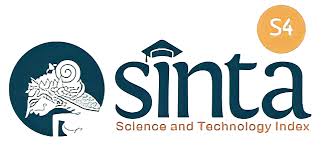Speech Acts and Politeness Strategies in Gita Wirjawan-Maudy Ayunda Podcast
DOI:
https://doi.org/10.37680/linguafranca.v4i1.7795Keywords:
Discourse Analysis, Podcast, Politeness Strategies, Pragmatics, Speech ActsAbstract
The rise of podcasting has created new arenas for public intellectual discourse in Indonesia, characterized by unique interactional dynamics. This study investigates the pragmatic mechanisms that underpin these conversations, focusing on how communicative actions are performed and how interpersonal relationships are managed. Using a qualitative case study design, this research conducts a pragmatic analysis of the 'Endgame' podcast interview between host Gita Wirjawan and guest Maudy Ayunda. The study employs two key theoretical frameworks: Searle's Speech Act Theory and Brown and Levinson's Politeness Theory, interpreted through a contemporary lens. The analysis identifies the predominant speech acts used to construct the discourse and the politeness strategies employed to maintain face and foster a collaborative atmosphere. Findings indicate a high frequency of Assertive speech acts by Maudy Ayunda to establish expertise and present arguments, and Directive speech acts by Gita Wirjawan to guide the conversation. Crucially, these acts are consistently mitigated by sophisticated politeness strategies. Positive politeness (e.g., agreeing, showing admiration) builds rapport. In contrast, negative politeness (e.g., hedging, questioning, using indirectness) is employed to soften potentially face-threatening acts like disagreement or probing personal topics. This study concludes that the intellectual nature of the conversation is co-constructed through the content and a skillful interplay of speech acts and politeness strategies that allow for exploring complex and potentially sensitive ideas while preserving mutual respect and collaborative harmony.
Downloads
Published
How to Cite
Issue
Section
License
Copyright (c) 2025 Rini Marliana

This work is licensed under a Creative Commons Attribution-NonCommercial 4.0 International License.
Lingua Franca: Jurnal Bahasa dan Sastraallow the author(s) to hold the copyright without restrictions and allow the author(s) to retain publishing rights without restrictions, also the owner of the commercial rights to the article is the author.
License:
- Attribution: You must provide an appropriate name, include a link to the license, and certify that changes have been made. You can do this in an appropriate manner, but do not imply that the licensor supports you or your use.
- Share Alike: If you compose or make derivatives of these materials, you must distribute your contributions under the same license as the original materials.
- No additional restrictions: You may not use legal provisions or technological means of control that legally restrict others from doing the things this license allows.
You are free to:
- Share, copy, and redistribute this material in any form or format.
- Adapt, modify, and create derivatives of this material for any purpose, including commercial purposes.
- The licensor cannot revoke the above terms as long as you comply with the terms of this license.
Creative Commons Attribution-ShareAlike 4.0 International License (CC BY-SA 4.0).






